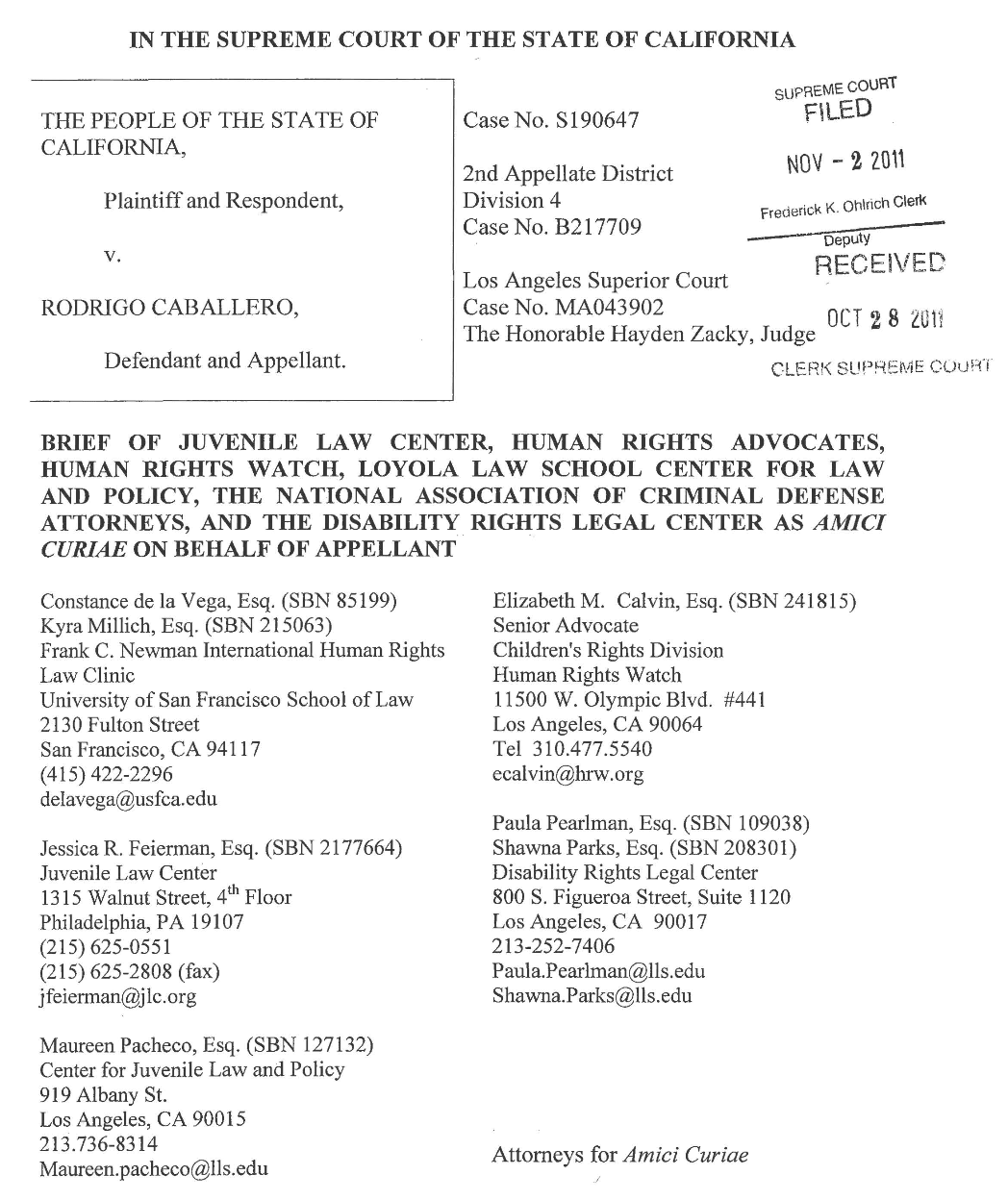
Summary of Argument
In 2009, Rodrigo Caballero was found guilty on three counts of attempted murder with special enhancements and was sentenced to three consecutive life terms totaling 110 years to life. Caballero committed the offenses at age 16, was sentenced at age 18, and his earliest eligible parole date is June 5, 2112 when he will.be 122 years of age;1 As such, he will not be eligible for parole in his lifetime and was thus .sentenced to the functional equivalent of life without parole, i.e., he will die in prison.2 The United States Supreme Court's decision in Graham v. Florida 130 S.Ct. 2011 (2010) requires that this sentence be vacated.
The Supreme Court ruled in Graham that juvenile offenders cannot be sentenced to life without a meaningful and realistic opportunity for re-entry into society prior to the expiration o f their sentence for non-homicide offenses. Id. at 2010. The Court explained: The juvenile should not be deprived of the opporturiity to achieve maturity ofjudgment and self-recognition of human worth and potential. ... Life in prison without the possibility of parole gives no chance for fulfillment outside prison walls, no chance for reconciliation with society, no hope. Id. at 2032. Graham therefore held that a sentence that provides no "meaningful opportunity to obtain release" before the end of the term is unconstitutional. Id at 2033. Here, Appellant was sentenced to remain in prison until he is approximately 122 years old for non-homicide offenses for which he was charged when he was a juvenile. Because this ·sentence means that Petitioner will unquestionably die in prison before any possibility of release, it is unconstitutional under Graham.